Dr Sprecher is an unusual name for a soda, if you think about it.
Sure, the name has its advantages. It gives you a good idea of what to expect. As you could probably guess, Dr Sprecher is a fire-brewed spiced cherry soda with an added kick of caffeine. It tastes great and it gives you an energy boost.
That's neat, but why does the name Dr Sprecher make you think of that flavor profile? Forget everything you know about sodas named "Dr" and think of the words. The words suggest something medicinal.
Of course, you know Dr Sprecher is not medicine. Neither are any of the other sodas named "Dr". These vaguely medicinal names are not fooling anyone, and they aren't very descriptive either. They just don't make a lot of sense.
So who the heck put the "Dr" in Dr Sprecher? Why are there so many "Dr" sodas out there? The answer is a pretty shocking story, and it begins with snake oil salesmen.
The Seedy World of Patent Medicine
Many of today's big name brand sodas evolved from patent medicines. What are patent medicines, you ask? Consider yourself lucky that you don't have to learn from experience.
According to the Hagley Museum and Library, "patent medicine" generally refers to a class of unregulated 18th and 19th century drugs. Basically, these were quack medicines--snake oil, if you will.

Patent Medicines like these were unregulated and often contained alcohol and other drugs via Wikimedia Commons
Since patent medicines were unregulated, they were usually made by sleazy salespeople with limited medical knowledge.
All that mattered to most patent medicine salespeople was having lots of customers who kept coming back. A great way to have this kind of success was to fortify your patent medicine with addictive drugs. So, patent medicines often contained heavy doses of alcohol, opium, morphine, or cocaine--or some combination of these.
In a less scientific world where professional doctors were sometimes just as useless as the quacks, these medicines provided real comfort to some people. Apart from their addictive qualities, patent medicines were appealing to folks because many of them did actually relieve painful symptoms.
Nonetheless, patent medicines were on balance a harmful force. They made users dependent on alcohol or other drugs, offered false hope, and did nothing to cure people's underlying medical conditions.
Scary stuff, but what does it have to do with soda?
Patent Medicine Sodas: A Spoonful of Sugar Makes the Medicine go Down
Some makers of patent medicine made their hard-to-swallow drug formulations more palatable by serving them up in the form of a soda. Joe Nickell of the Skeptical Inquirer notes that recognizable brands including Coca-Cola, Pepsi-Cola, 7UP, and (you guessed it!) Dr Pepper have historical ties to patent medicines.
Other broad categories of soda are tied to patent medicines as well. As I discuss in this article, Root Beer evolved from a medicinal drink made using Sarsaparilla and Sassafras as active ingredients to, erm, "improve digestion," if you catch my drift. Similarly, ginger ale and ginger beer evolved from drinks that were in part consumed for the alleged medicinal benefits of ginger.
As shown by the examples of root beer and ginger beer, some patent medicine sodas were relatively benign, and in the case of ginger beer especially, may have even had actual benefits.

An 1886 ad for Coca-Cola touting the "nerve stimulant" properties of the coca plant, which is the plant refined to make cocaine via Wikimedia Commons
Others had sketchier formulations, like the original Coca-Cola, which contained small (but not insignificant) amounts of cocaine. Although to be clear, Coca-Cola removed the cocaine over 100 years ago, so don't go writing your congressman or whatever.
Dr Pepper, Brain Tonic
According to the Dr Pepper museum, Dr Pepper was first formulated in 1885 during the tail end of the patent medicine era. It was not the first soda with a "Dr" prefix, as the east coast's favorite Celery Soda, Dr. Brown's, was made in 1868. However, Dr Pepper is certainly the most recognizable of the "Dr" sodas these days.
Dr Pepper was not made by a doctor, although it was first sold out of a drugstore. It was made by a pharmacist named Charles Alderton who was weirdly hell-bent on making a soda that tasted like the inside of his drugstore smelled: like a bunch of different kinds of fruit syrup.
Alderton experimented with many different blends, until one fine day, he hit upon the perfect formula and began selling it out of Morrison’s Old Corner Drug Store in Waco, Texas. For awhile, the drink was just called a "Waco," but Alderton inexplicably changed the name to Dr Pepper.
There are many conflicting stories about why Alderton named his soda Dr Pepper, but none are confirmed. What is clear is that Alderton leveraged the medicinal aura around the drink to his advantage in early advertising efforts. Nickell mentions that early Dr Pepper ads pitched the drink as an energizing "brain tonic."

Early Dr. Pepper advertising implied the drink was healthy, first with claims that it was a "brain tonic," and later with subtler slogans like "good for life!" via Wikimedia Commons
For awhile this advertising flew under the radar since the Pure Food and Drug Act of 1906 (which eventually led to the FDA being established in 1930) was being used to fry much bigger fish. For example, Upton Sinclair's The Jungle, a book that describes a man being turned into lard in a meatpacking plant, was also published in 1906.
However, by the 1950s, "brain tonic" soda wouldn't fly. Advertisers changed their tune, and the period was dropped from Dr. so as not to imply that the drink had any medical benefits.
Though Dr Pepper left its medicinal pretensions behind long ago, the name stuck. Since Dr Pepper and other "Dr" sodas have not released their formulas, and their flavors are famously hard to pin down, many companies using a similar flavor profile just put "Dr" in their names to let people know what to expect.”
So, who put the "Dr" in Dr Sprecher?
We could name our soda "a fire brewed craft soda made with a cherry-forward blend of fruit and spice flavorings resembling but legally distinct from others in the market," but Dr Sprecher is a lot shorter, and it gives you the same idea.

Now that you know who put the "Dr" in Dr Sprecher, I think it's worth giving it a try. Sure, there are lots of "Dr" sodas out there, but how many of them are craft sodas fire-brewed with real honey? For what it's worth, I can only think of one. Click here to buy some, and we'll send it right to your doorstep.
Always stay in the know by joining our mailing list, and get the first access to our new craft sodas, craft beer and deals on apparel and gift shop items. Sign up today.
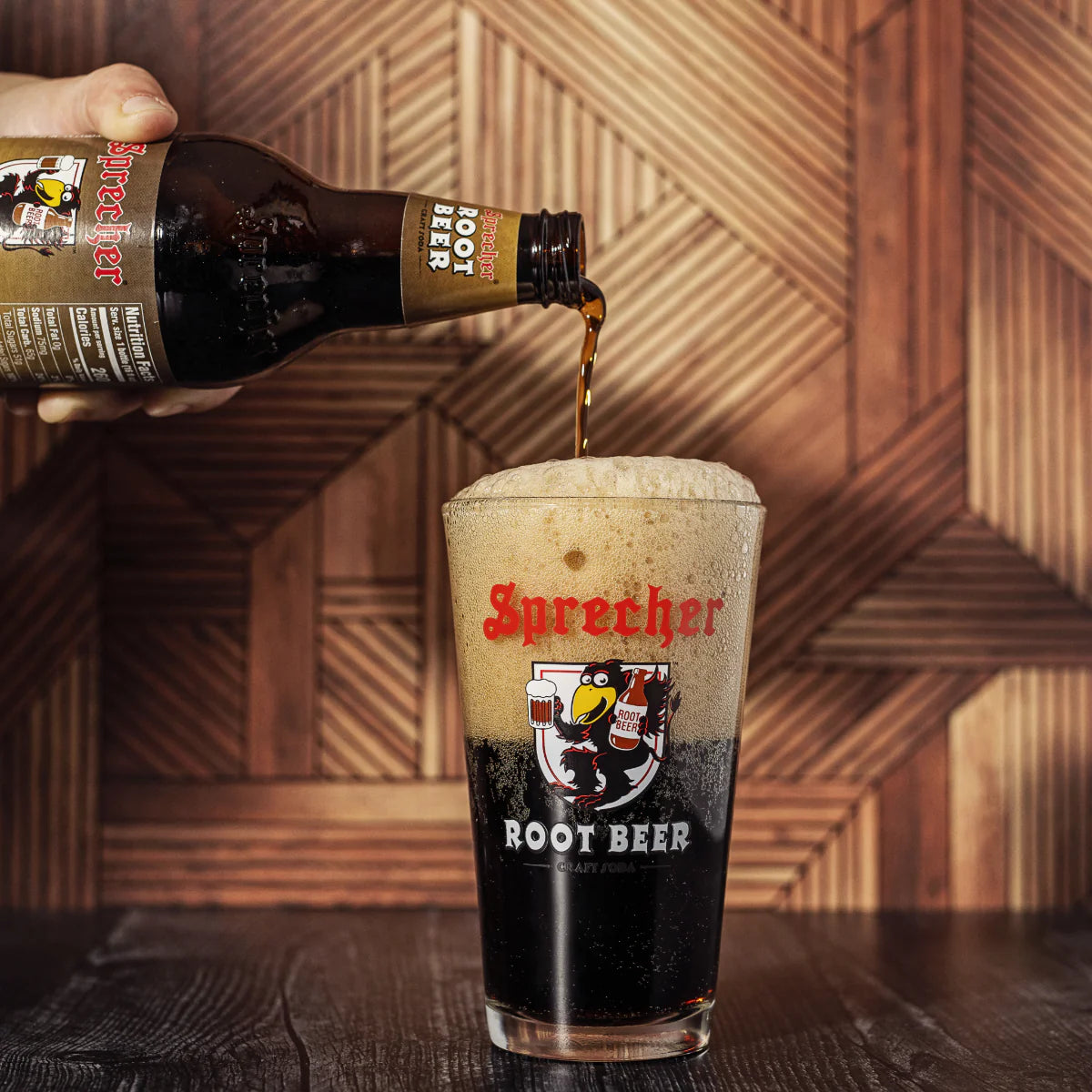
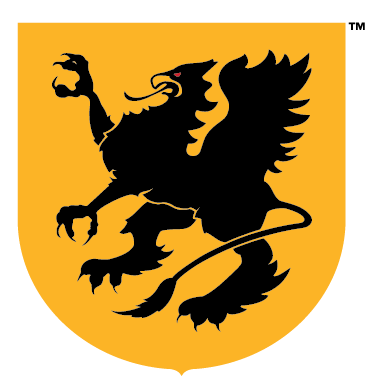
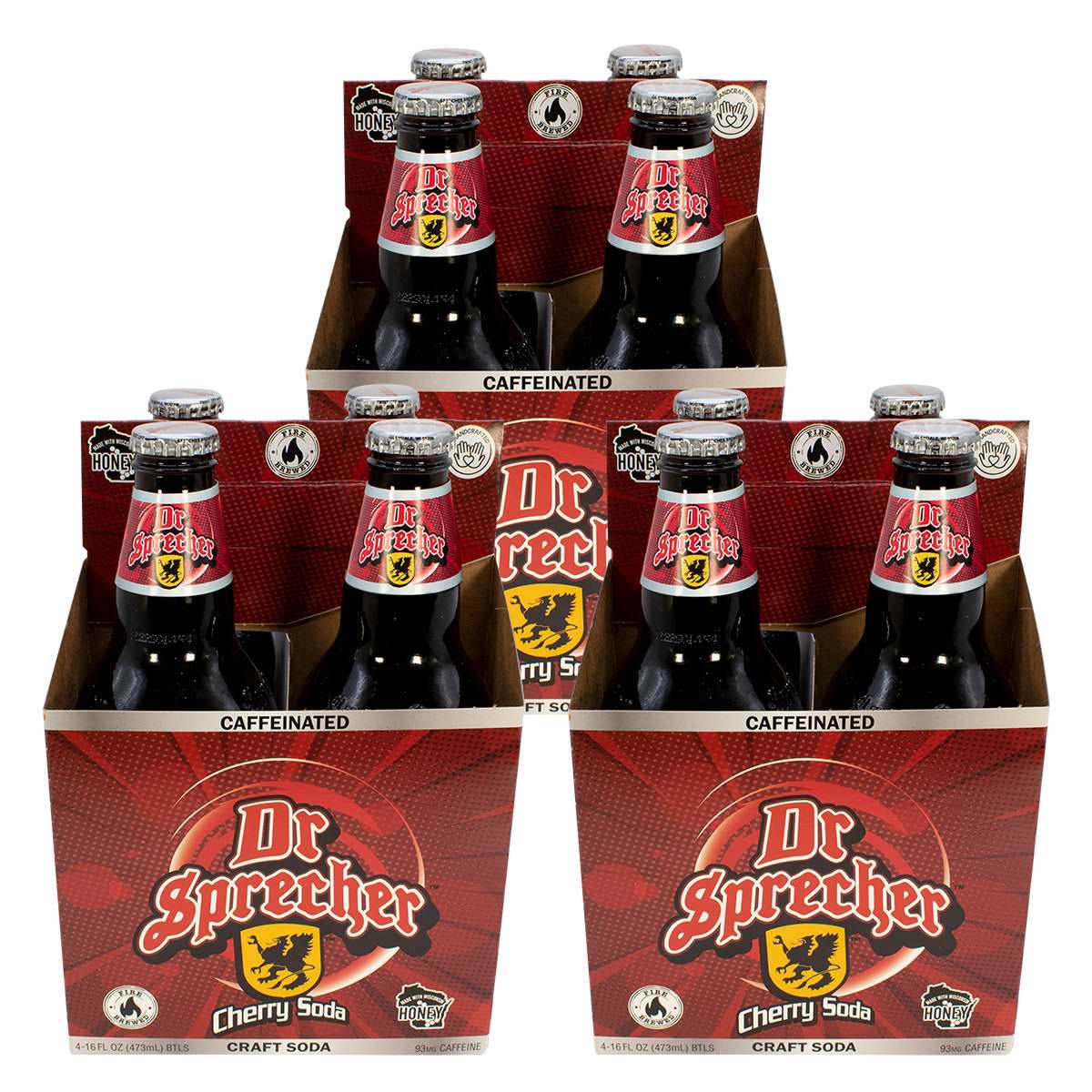
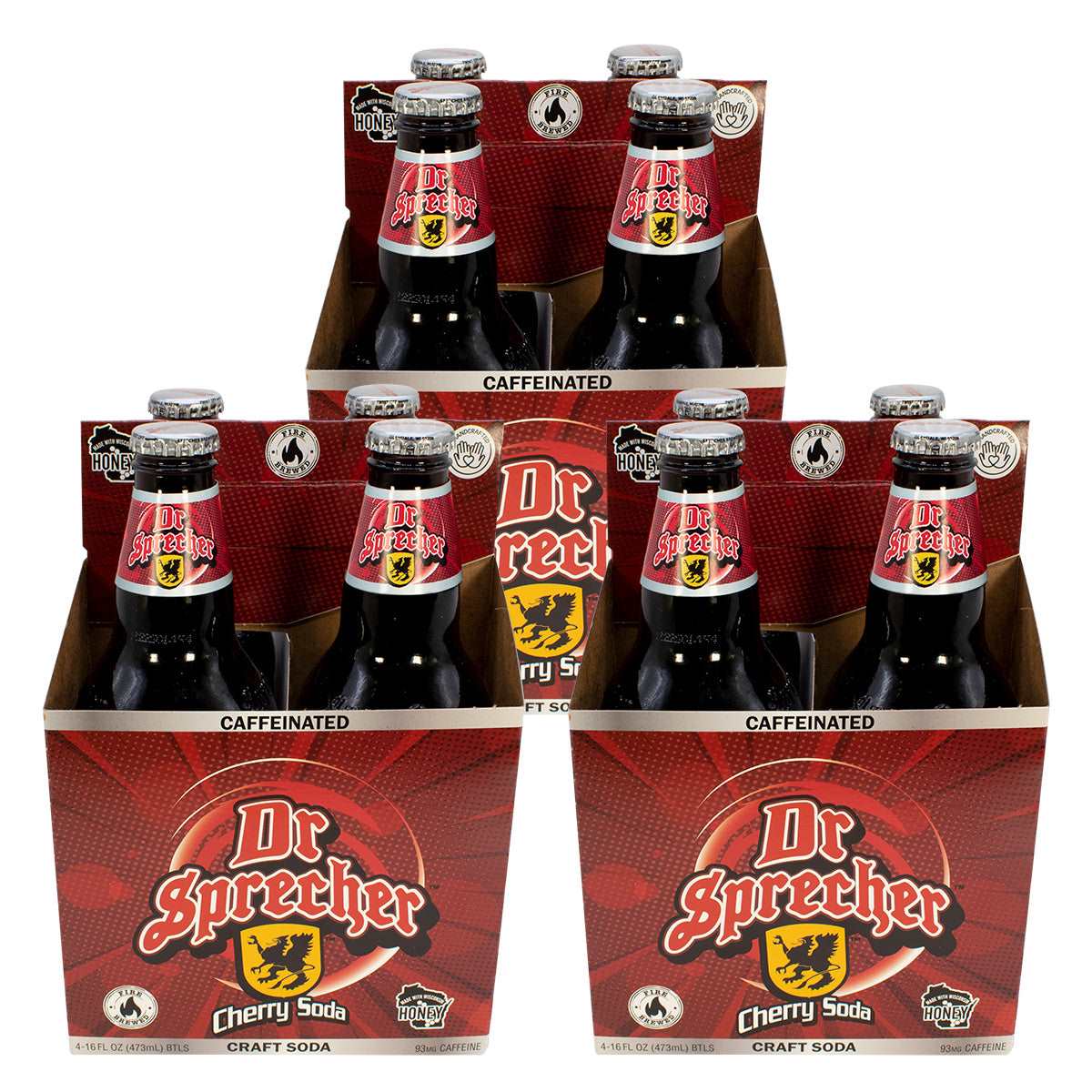
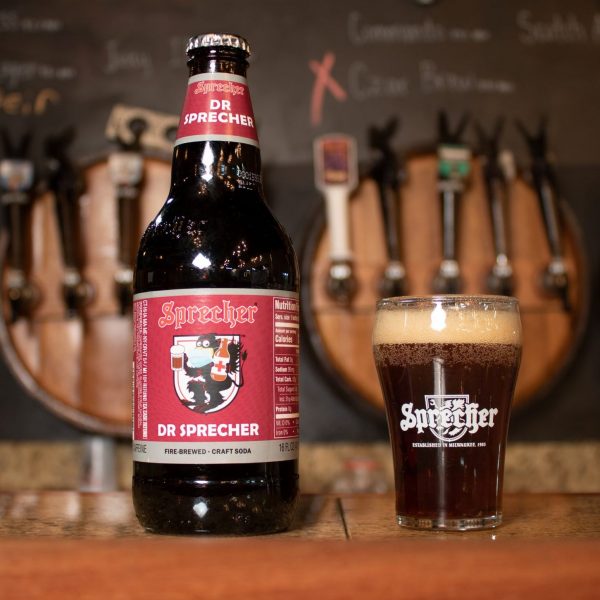

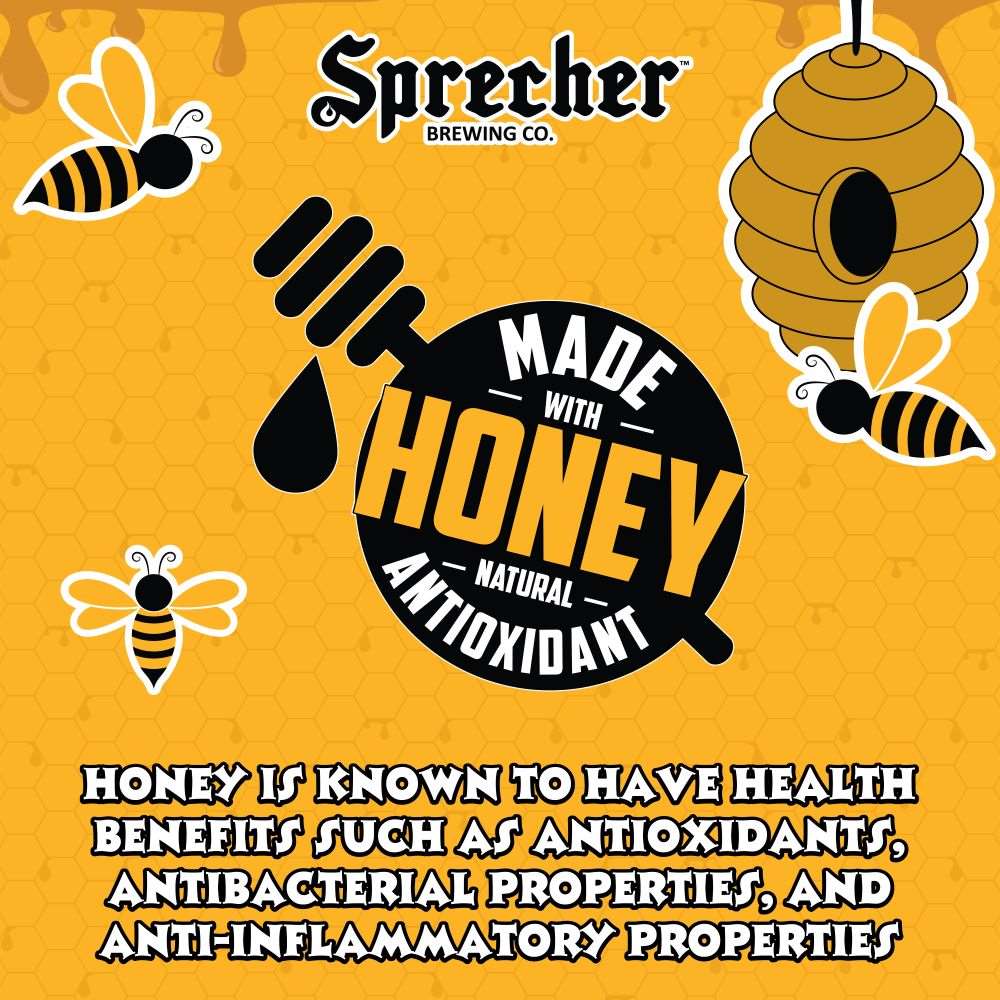
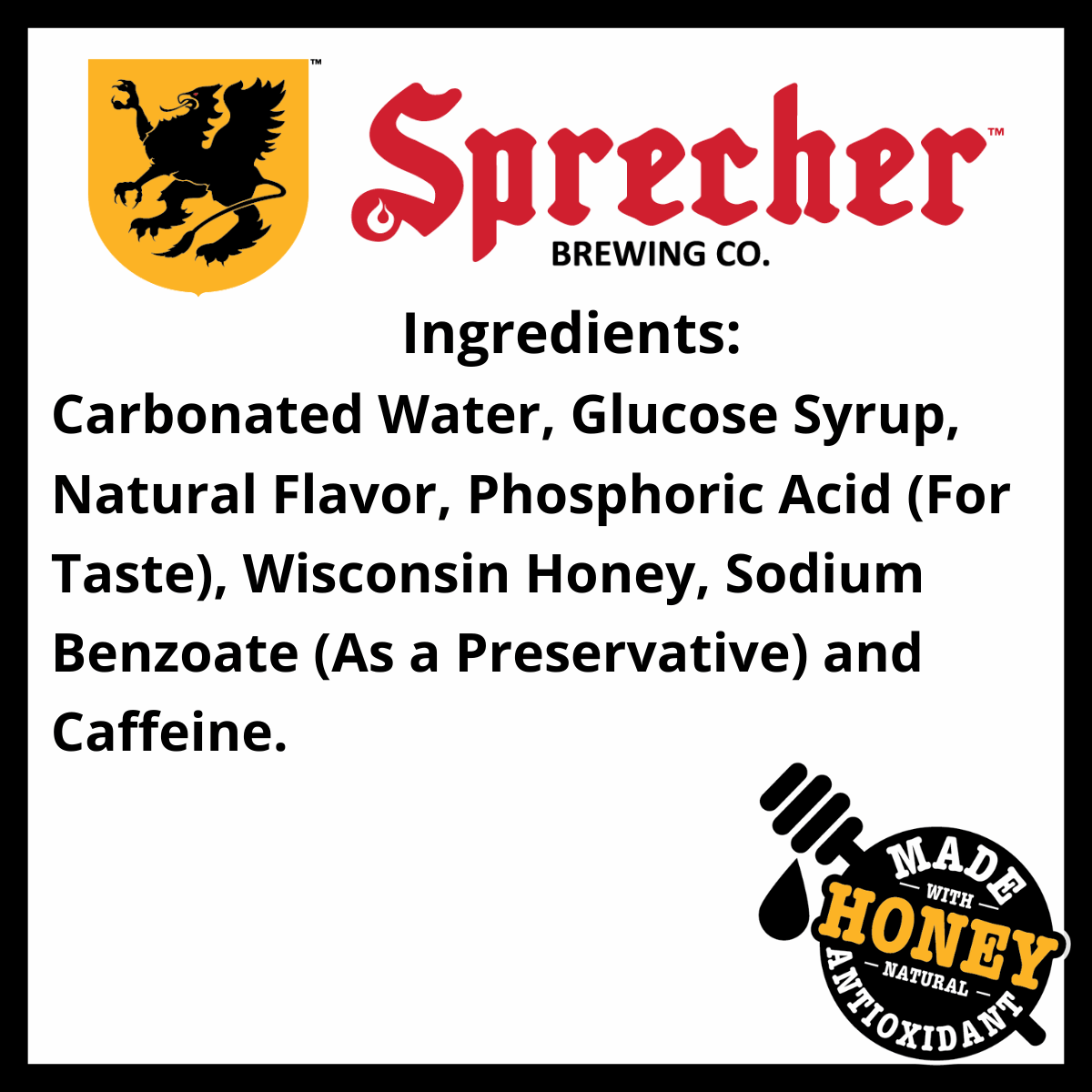
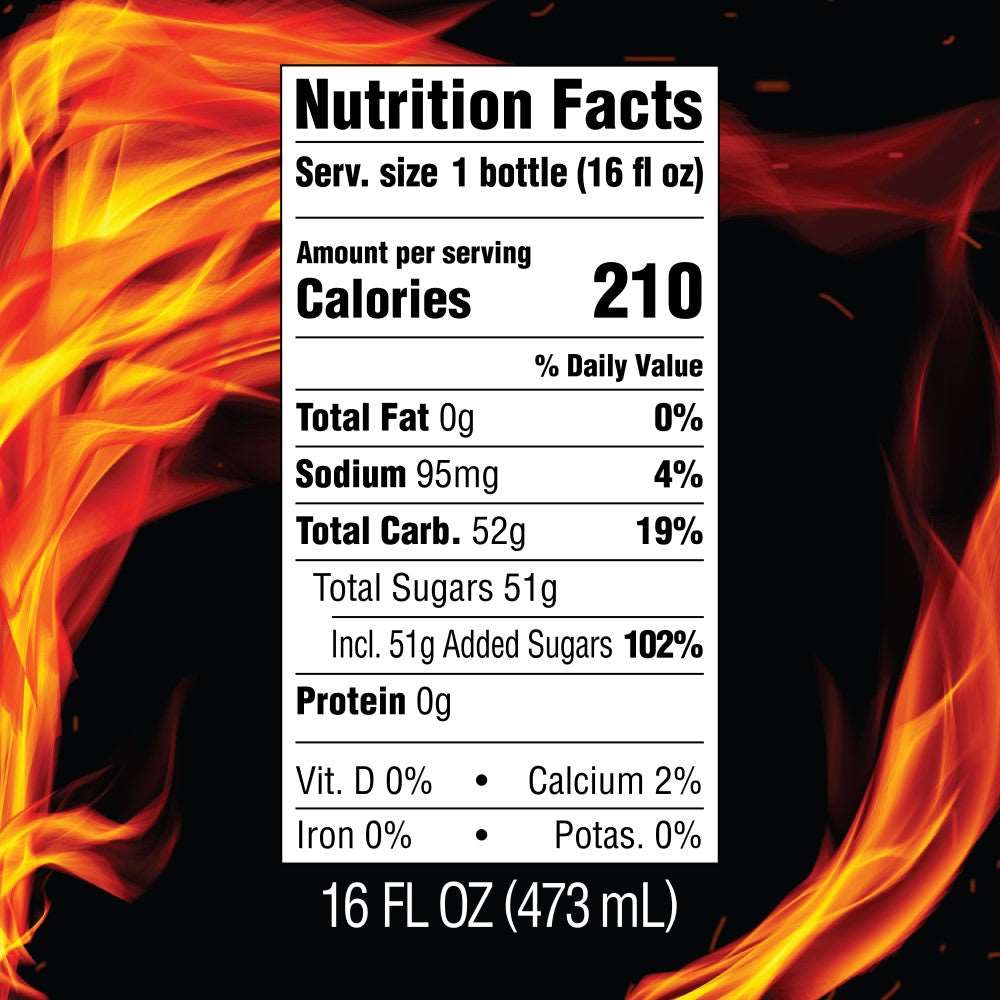
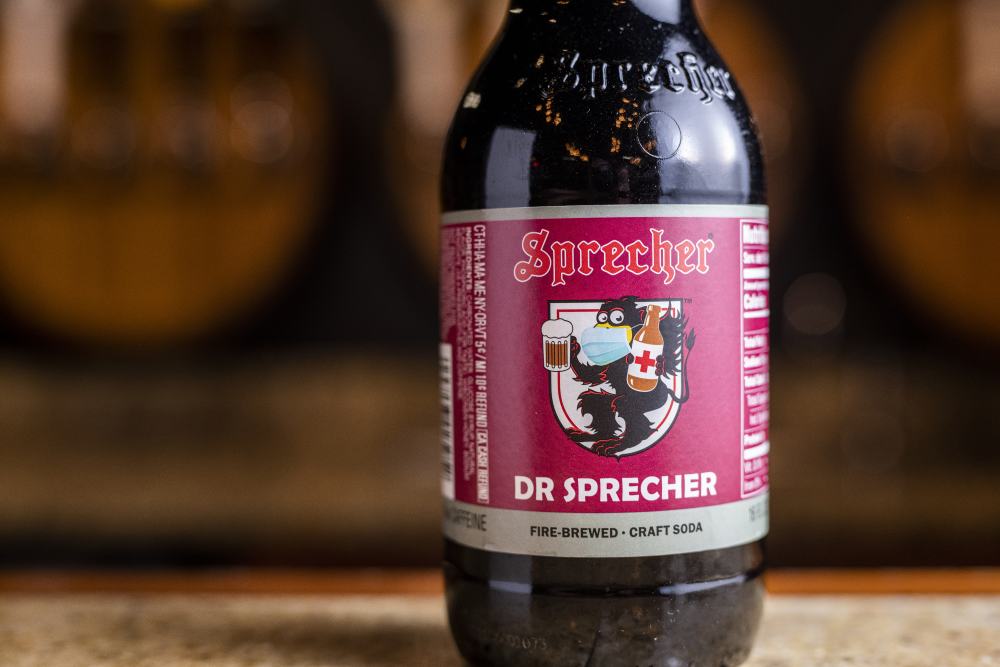
2 comments
I trust Dr Sprecher and no other soda Dr. to deliver a great flavor experience.
Dr Sprecher is the best Dr soda and I will proudly sing it from the rooftops! My son Todney is obsessed with the stuff. Fun medicinal origins! Consider me subscribed to the drama!